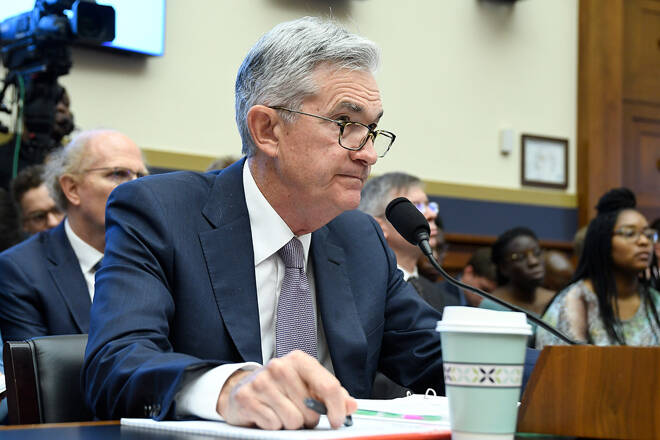Advertisement
Advertisement
There’s Not Much Monetary Policy Can Do to Save Global Economy, but Fed Slashes Rates Anyway
By:
Powell also said the Fed would continue to watch the coronavirus spread and would adjust policy accordingly, though he indicated that response would come in the form of rate cuts rather than additional asset purchases, or quantitative easing.
We’ve heard it for months from the major central bank policymakers, but this time, we’re hearing it from investors and economists – there’s not much monetary policy can do to save the global economy. If you don’t believe it then just ask the European Central Bank and the Bank of Japan how much negative interest rates have helped revive their respective economies.
“The fact is, we’re coming into this crisis with far less ammunition globally. It’s not just Europe or Japan, even in China they have much less ammunition than the last time they had to launch a stimulus package,” Alex Wolf, J.P. Morgan Private Bank’s head of investment strategy in Asia, told CNBC’s “Squawk Box Asia.”
Powell: Fed Saw ‘A Risk to the Outlook for the Economy and Chose to Act’
After keeping its powder dry for several months, the Fed chose to make a pre-emptive strike against the impact of the coronavirus on the U.S. economy. It did so because it still had more room to cut rates than the other major central banks.
At a news conference following the Fed’s decision to cut overnight interest rates by half a percentage point, Federal Reserve Chairman Jerome Powell said, the Fed “saw a risk to the economy and chose to act.”
“The magnitude and persistence of the overall effect on the U.S. economy remain highly uncertain and the situation remains a fluid one,” he said. “Against this background, the committee judged that the risks to the U.S. outlook have changed materially. In response, we have eased the stance of monetary policy to provide some more support to the economy.”
More Rate Cuts Rather than Quantitative Easing
Powell also said the Fed would continue to watch the coronavirus spread and would adjust policy accordingly, though he indicated that response would come in the form of rate cuts rather than additional asset purchases, or quantitative easing.
Asked whether officials are considering using other tools, Powell said, “In the current context, no. What we discussed, the current stance of policy, is it appropriate? We came to the view that it was appropriate to make changes and went ahead and did that today.”
Powell also said signs that the virus spread had caused committee members to change their outlook.
“For us, what really matters of course is not the epidemiology but the risks to the economy,” he said. “So we saw a risk to the economy and chose to act.”
About the Author
James Hyerczykauthor
James Hyerczyk is a U.S. based seasoned technical analyst and educator with over 40 years of experience in market analysis and trading, specializing in chart patterns and price movement. He is the author of two books on technical analysis and has a background in both futures and stock markets.
Advertisement
